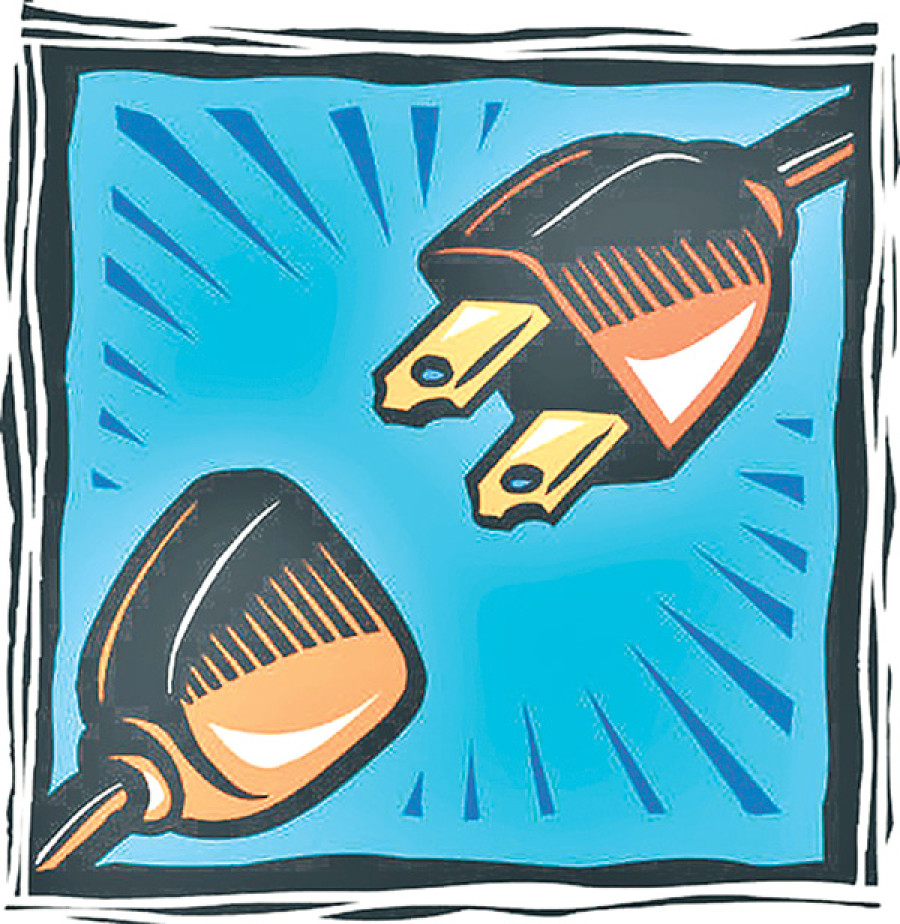Opinion
Not a good idea for now
Smart meters are the ones capable of communicating with each other and executing command signals remotely and locally.
Subrata Lamsal
Smart meters are the ones capable of communicating with each other and executing command signals remotely and locally. They are generally introduced for better energy saving, demand management and energy efficiency. They provide good solutions for overcoming the problems associated with the old grid system and are one of the many components of smart grid technology.
Such meters are mostly used in developed countries where there is a smart grid, which is a system where the customers have the power to choose the source of their electricity and can actively participate in energy production as prosumers. Likewise, smart meters allow utilities to automatically monitor the status of the grid, thereby allowing them to dispatch repair teams when there is a problem in the grid. Also, smart meters help them to better predict demand and thus manage supply efficiently.
The benefits
Many advantages are attributable to smart metering, including lower metering costs, energy savings for residential customers, greater reliability of supply and variable pricing schemes to attract new customers. A smart meter can be installed at the consumer’s premises in order to monitor and control home appliances and devices. It is capable of collecting diagnostic information about the distribution grid and consumer appliances. The smart grid system is also supported with smart meters by measuring electricity consumption, supporting decentralised generation sources and billing the consumers remotely.
Likewise, smart metering helps to keep electricity bills down, as it allows the consumers to keep an eye on their electricity use during peak hours. Since the electricity supplied by Nepal Electricity Authority (NEA) has a different tariff rate at different times of the day, smart meters can help consumers know when peak pricing starts. This allows consumers to switch off their high power consuming devices during these hours, which ultimately helps them save money on their electricity bills.
Likewise, there also exists a system of energy management which promotes energy saving, and through the use of smart meters, consumers are constantly provided with digital data on their energy consumption. This would help consumers consciously cut down their electricity use.
Nepali context
However, in the context of Nepal, it is still debatable whether introducing smart metering would control excessive energy use, given the country’s erratic energy supply and the absence of energy labelling of devices. This is because most of the urban households use outdated and energy inefficient devices, and the trend of overusing power as and when available would not be entirely curbed through the introduction of smart metering.
Similarly, with regard to the NEA’s proposal to introduce smart meters to save energy loss from theft, the cost of introducing them—ie site specific costs like communication and installation costs as well as meter specific costs like maintenance, data management and meter purchase cost—would most likely outweigh its benefit.
Firstly, the introduction of such meters would mean that the cost of installation would be borne by the customers, who given the unreliable energy supply would most likely be unwilling to make such a hefty investment. Secondly, even if the NEA were to bear the cost, given its other urgent needs like achieving financial stability, investing in the transmission sector and so on, the introduction of smart meters should not be its priority at the moment.
Furthermore, although smart meters are efficient on paper, it is necessary to understand that they raise issues of data protection and security. This has been experienced and debated in countries with the most successful smart metering
system like the UK. Similarly, the assumption on which the metering is based, ie efficient demand side management, raises questions about awareness among consumers and their conscious choices. It is very important to note that for smart meters to succeed, awareness among consumers is a must. Otherwise, it is not possible to change the scenario despite the replacement of old meters with smart meters, which will make them digital meters that just transmit and receive data.
Apart from the issues associated with consumer participation, we should also understand that the introduction of smart meters requires communication infrastructures and technical meter functionality. Also, the capacity and skills to install and maintain these meters are of considerable importance. Looking at the practice and trend in Nepal, it is highly doubtful if the NEA still has the wherewithal to invest in such an ambitious project. Likewise, the need for new regulatory measures that would have to be adopted to ease the process would most likely halt the process even if we were to be optimistic about other technicalities.
For all these reasons, the idea of installing smart meters, though it sounds like a solution to Nepal’s power woes, would at present create a heavy burden on both
the financially struggling NEA and its power-deprived consumers.
Lamsal is an LLM candidate in Energy and Climate Law at the University of Groningen, the Netherlands




 20.12°C Kathmandu
20.12°C Kathmandu










